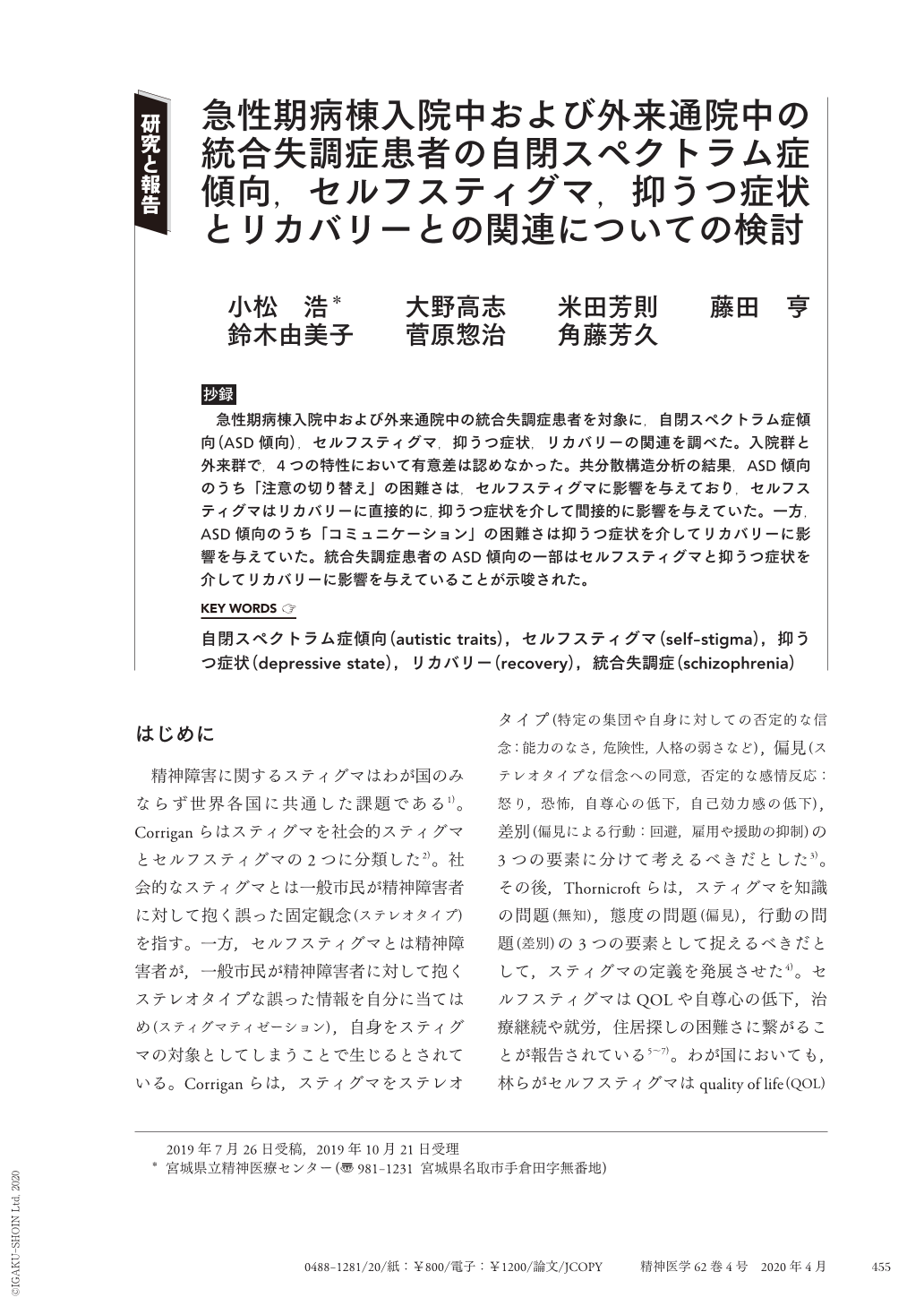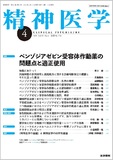Japanese
English
- 有料閲覧
- Abstract 文献概要
- 1ページ目 Look Inside
- 参考文献 Reference
抄録 急性期病棟入院中および外来通院中の統合失調症患者を対象に,自閉スペクトラム症傾向(ASD傾向),セルフスティグマ,抑うつ症状,リカバリーの関連を調べた。入院群と外来群で,4つの特性において有意差は認めなかった。共分散構造分析の結果,ASD傾向のうち「注意の切り替え」の困難さは,セルフスティグマに影響を与えており,セルフスティグマはリカバリーに直接的に,抑うつ症状を介して間接的に影響を与えていた。一方,ASD傾向のうち「コミュニケーション」の困難さは抑うつ症状を介してリカバリーに影響を与えていた。統合失調症患者のASD傾向の一部はセルフスティグマと抑うつ症状を介してリカバリーに影響を与えていることが示唆された。
This study aimed to compare autistic traits, self-stigma, depressive state, and recovery among hospitalized patients on an acute psychiatric ward and outpatients with schizophrenia. We also investigated whether self-stigma and depressive state mediated relationship between autistic traits and recovery in schizophrenic patients.
We used Autism-Spectrum Quotient(AQ), the Internalized Stigma of Mental Illness Scale(ISMI), Quick Inventory of Depressive Symptomatology(QIDS)and Recovery Assessment Scale(RAS)by evaluating respectively autistic traits, self-stigma, depressive state, and recovery in schizophrenia patients.
There was no significant deference in scores of AQ, ISMI, QIDS, and RAS between hospitalized patients on an acute psychiatric ward and outpatients with schizophrenia. Bivariate correlation analysis showed significantly positive correlations between IMSI average scores and QIDS scores. RAS score was negatively correlated to scores of QIDS, AQ and IMSI. Structural equation modeling revealed association between ‘attention switching’ and ‘communication’ of AQ subscales and RAS was mediated by respectively self-stigma(ISMI)and depressive state(QIDS).
The results of the present study demonstrate the importance of intervention to self-stigma and depressive symptoms to promote recovery in schizophrenic patients with autistic traits.

Copyright © 2020, Igaku-Shoin Ltd. All rights reserved.


